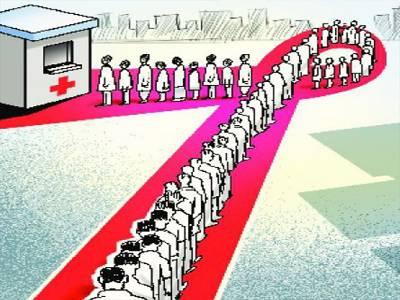Trust deficit at primary health centres
In Delhi, both the state government and the municipal corporations have been running several of them. But their condition is so bad that people prefer going to busy hospitals.
TOI visited one of such dispensary in Sitaram Bazar, Old Delhi. It wore at deserted look. Running from a tiny room with bare necessities, a doctor and a woman compounder, the centre was opened several decades ago. “People no longer come though the doctor is good and medicines free. The trust in the system has slowly eroded,” said K L Yadav, a local.
Ompal Jain, a senior citizen, said, “Doctors don’t come daily to such clinics. Services are available on three fixed days.”
Another such dispensary that specialises in Unani medicine is being run in Shankar Gali near Aruna Asaf Ali Road. “Corporations will have to modernise these dispensaries if they are to be revived,” said Mohammad Saleem, a local.
While the north corporation runs 15 polyclinics and 34 dispensaries, south and east corporations run eight polyclinics and 26 dispensaries, respectively. “BJP, which has been ruling the corporations for a decade, was quick to point out deficiencies and alleged corruption in the running of the mohalla clinics. But it has failed to answer why it has failed to run its own primary health centres,” said an official.
Dr Rana Mehta, executive director, healthcare at PWC, said a robust primary healthcare system can help in quicker diagnosis and treatment of diseases. “It can also act as a medium to propagate preventive measures among the masses, apart from de-crowding the tertiary and super-specialty hospitals,” he added.




Leave a Reply
Want to join the discussion?Feel free to contribute!